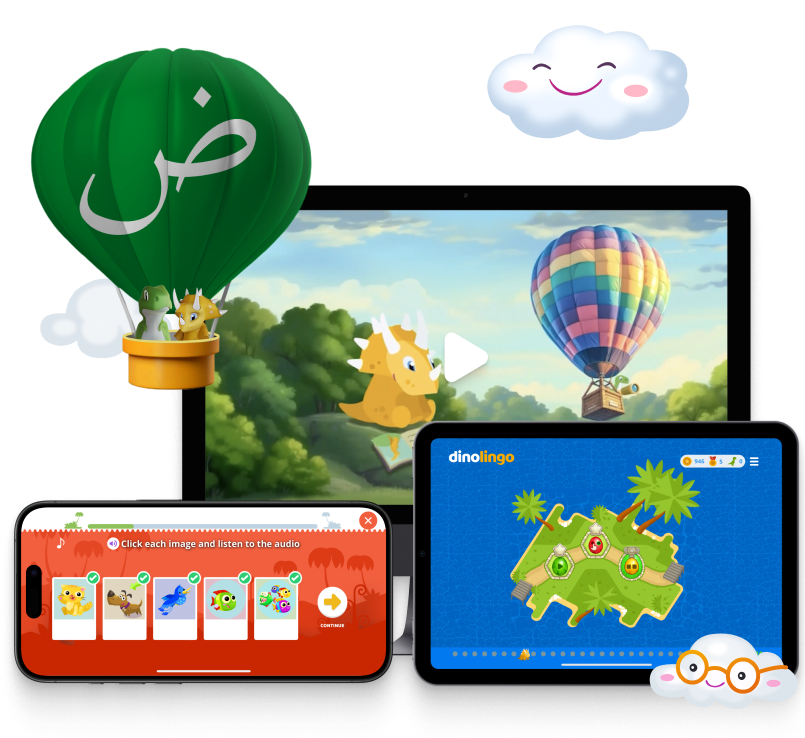Discovering Arabic Culture and Heritage for Kids
Arabic culture is one of the richest and most influential cultures in the world. From its legendary poets and storytellers to its colorful clothing and deep-rooted family values, the Arab world offers children a fascinating journey through language, faith, traditions, and community. Understanding Arabic culture helps children appreciate diversity and respect other worldviews, while also making learning the Arabic language more meaningful and fun.
What Is Arabic Culture Made Of?
Arabic culture includes everything related to literature, art, customs, clothing, and religion. It reflects the daily life and values of people living in Arabic-speaking countries. While many Arab societies have embraced modern influences, traditional practices, especially those based on Islam and Arabic language, remain central to their cultural identity.
Language and Literature
Arabic is not just a language—it is a cultural treasure. Arabic literature is filled with poetry, folk tales, wisdom sayings, and stories passed down through generations. Famous poets such as Nizar Qabbani, Imru’ al-Qais, and Ahmad Shawqi are known for capturing emotions and life experiences through beautiful language. These literary works help children connect with imagination and values like courage, honesty, and kindness.
Religion and Values
Islam, the dominant religion in the Arab world, has greatly shaped Arabic culture. It encourages values such as peace, fairness, family bonding, and compassion. In most Arab homes, you’ll find people praying five times a day, fasting during Ramadan, and celebrating religious holidays with delicious food and joyful gatherings. Children learn from a young age the importance of respect—especially toward elders, parents, and teachers.
Traditions and Family Life
In Arab societies, family comes first. Grandparents, uncles, aunts, and cousins often live close by and gather regularly. It’s common for elders to be decision-makers, and younger family members are taught to show deep respect to them. Sharing meals is another important custom, especially during holidays like Eid or family events. Generosity and hospitality are core cultural values that children also learn.
Clothing and Modesty
Traditional Arab clothing varies by country but often includes long garments and head coverings, especially for women. Clothes are designed for modesty and comfort in the region’s warm climate. Even though modern Western styles are common in cities, many families still wear traditional outfits during cultural festivals or special occasions.
Food and Celebrations
Arabic cuisine is full of flavor and variety. From hummus and falafel to lamb dishes and baklava, each region has its specialties. During Ramadan, children often help prepare meals and learn the importance of sharing food with neighbors and the needy. Sweets like maamoul and qatayef are especially popular during holidays.
Learning Arabic Culture with Dinolingo
For children learning Arabic, exploring the culture makes language learning more exciting and relatable. Dinolingo’s Arabic program for kids combines storytelling, songs, games, and interactive activities that introduce both the Arabic language and culture. Whether it’s learning Arabic greetings or hearing a fun folktale, kids are immersed in the real-life context of the language.
Dinolingo is available on web, iOS, and Android platforms, with options for offline learning. It supports children ages 2 to 14 with level-based learning paths and offers a special parent dashboard for progress tracking. If you’re looking for a fun and meaningful way to teach kids about Arabic, Dinolingo is a great place to start.
Start Learning a New Language Today!
Best Language App for Kids.
7-day free trial. Then only $19/month. Cancel anytime.

